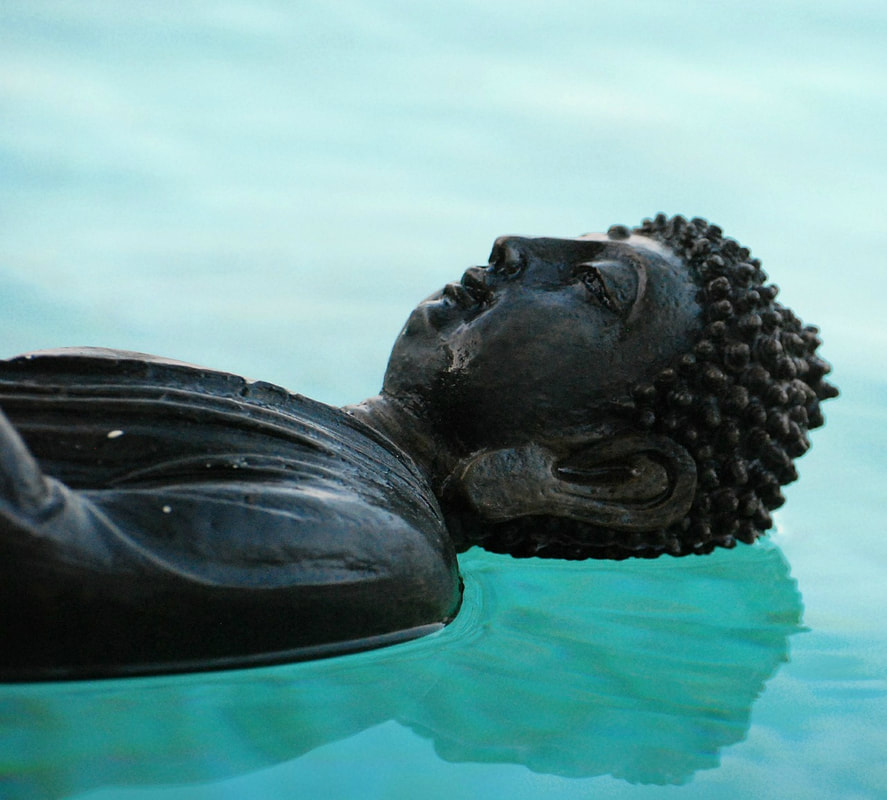|
Both Indian sage Patanjali and Buddha taught that when one is able to adhere to the states of mind known as brahmaviharas, one becomes open to experiencing unconditional love. These four states of mind, as defined in yoga sutra 1.33, are loving kindness, compassion, joy and equanimity.
“By cultivating attitudes of friendliness toward happiness, compassion toward suffering, delight toward virtue, and equanimity toward vice, thoughts become purified, and the obstacles to self-knowledge are lessened.” Quote from the book, The Secret Power of Yoga These four qualities may sound easy enough. But, are they that easy when you are tested? In other words, can you be kind to someone in their happiness even when you are not happy or tolerant of what is creating their happiness. An example would be smoking. The person smoking is happy with their cigarette. You, on the other hand, may not appreciate the smell. Can you still be kind to that person in their happiness or are you tempted to send a glare in their direction? The second quality is compassion and the example I gave in class had to do with homeless person A, B and C. Person A has worked all their lif but due to tough times, lost heir job and home. Person B is homeless due to poor choices like drugs, and alcohol. Person C is homepless for the same reason Person B is except that this person is in your family. And you r family has felt the ripples and repercussions of Person C's decisions. Can you feel equal compassion towards them all? We tend to feel less compassionate when someone has created their own suffering. Dalai Lama- "Through compassion you find that all human beings are just like you." The third quality is in finding joy for those who embody noble traits as well as those who struggle a little harder to find theirs. And, equanimity to those whose actions oppose your values. Martin Luther King Jr said, "The ultimate measure of a person is not where they stand in moments of comfort and convenience, but where they stand in times of challenge and controversy." By practicing these four "locks", one obtains the key to unconditional love. Stated a little differently, Swami Satchidananda translates Yoga Sutra I.33 as, "By cultivating attitudes of friendliness toward the happy, compassion for the unhappy, delight in the virtuous, and disregard toward the wicked, the mind-stuff retains its undisturbed calmness...If you use the right key with the right person, you will retain your peace." Author Dr. Gary Chapman writes about the five categories people fall under in regards to interpreting love. They are: People who need to hear they are loved, people who need quality time together to ensure they are loved, those who perceive gifts as a form of love, those who feel someone stepping up to help out with things defines love and those that translate physical touch into love. Walk with me by waters edge by Jeff Kaplan "Walk with me by waters edge, Hug like the wave hugs the shore, touch like the hush of waters ebb, Kiss like the sun melts into the sea. Listen to my heartbeat, from a low rumble, to a quiet touch, from a rush, to a tight embrace, then, a slow release. On a bed of sand and shell, Where lovers fall and rise, On a blanket of starry nights We might find you and I. Walk with me by waters edge, So our travels may be long not lonely Our lives be a gift that never ever end Hope and dreams to warm and hold. May the promises made by moon lit Dance with angels at mornings light Ripple through years of peaceful nights And a rainbow after every storms plight. Will you walk with me by waters edge..."
0 Comments
Leave a Reply. |
Archives
March 2024
|

 RSS Feed
RSS Feed